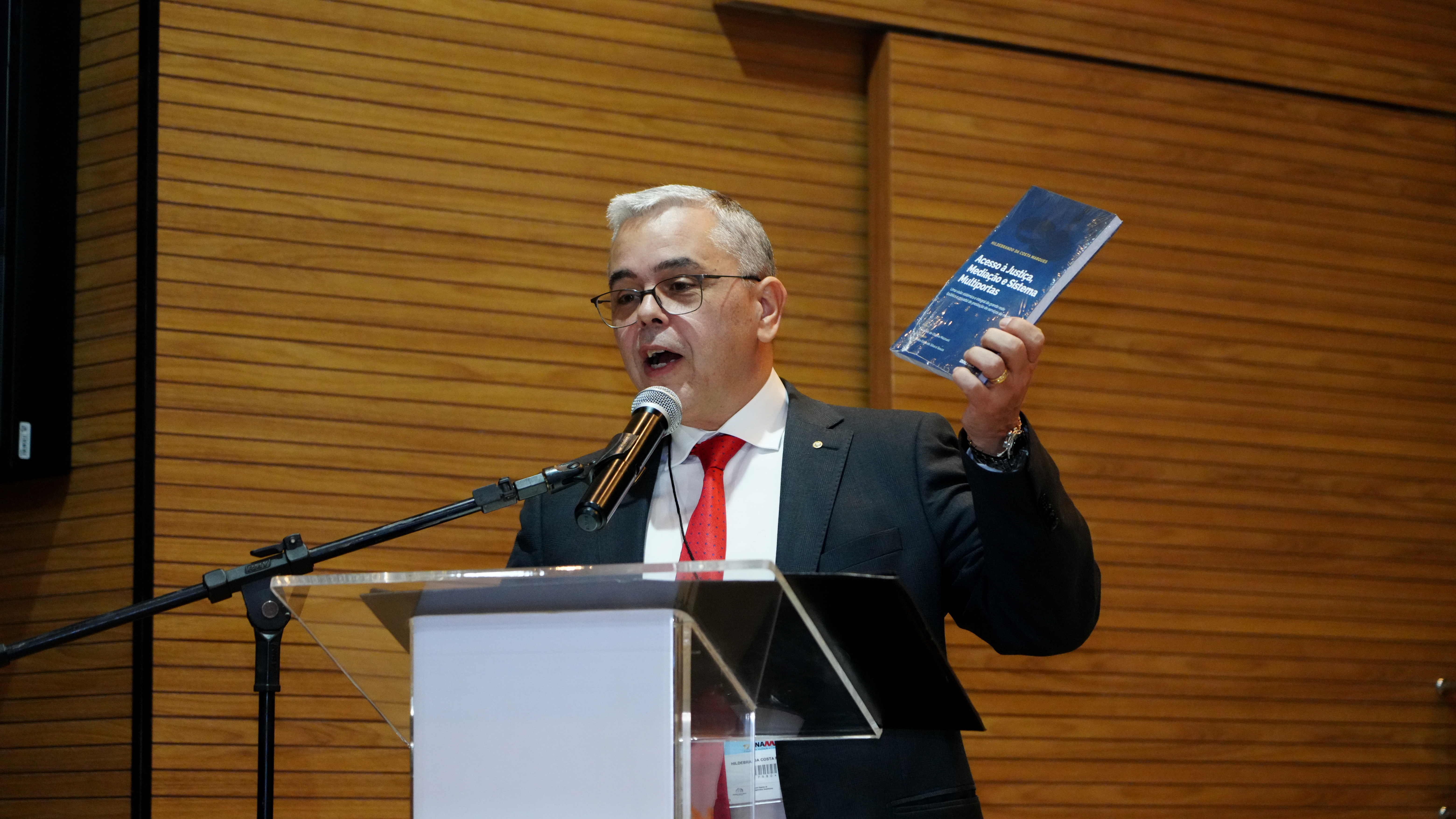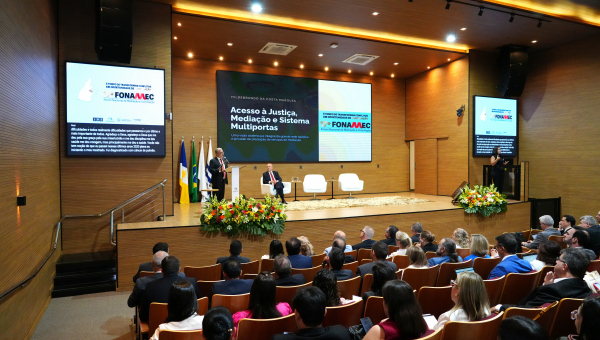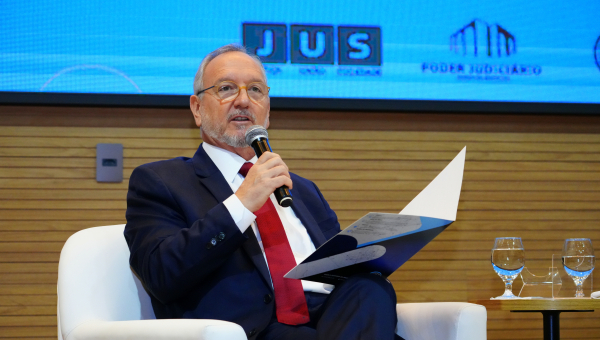
The second day of the 17th National Forum on Mediation and Conciliation (Fonamec), on Tuesday (June 17th), featured a lecture by Judge Hildebrando da Costa Marques, from the Court of Justice of the state of Mato Grosso (TJMT). In the auditorium of the Court of Justice of the State of Tocantins (TJTO), in the city of Palmas, the judge defended the consolidation of the multi-door model in the Brazilian Judiciary and the appreciation of mediators as essential agents for strengthening the culture of peace.
With the theme on “Access to Justice, Mediation and the Multi-door System”, the presentation was based on his master's research, which resulted in the publication of a book launched during the event.
During the presentation, Hildebrando outlined the evolution of mediation in Brazil since the publication of the Resolution 125 of the National Council of Justice (CNJ) in 2010, which established the National Judicial Policy for the Adequate Treatment of Conflicts.
"Before Resolution 125, mediation was done on a voluntary basis, by people passionate about the cause, but with no structure or institutional support. It was the CNJ that put mediation on the map of Brazilian Justice," he noted.
The magistrate explained that public mediation policy in the country has gone through three phases: an initial stage, marked by voluntarism (until 2010); a period of institutionalization within the courts (between 2010 and 2015); and the current moment, of consolidation and improvement.
"We are at a time when we need to balance the system. Funding, service capacity and quality are the three pillars of this public policy," he stressed.
Hildebrando also defended the expansion of the mediation network, with the integration of private chambers, offices and universities.
"The legislation has already provided for this network since 2010. We need to make it work fully. The system needs to be open to both the public service and the private sector. This is autonomy of will," he said.
Recognized for his work as a specialist in judicial mediation, the judge stressed the importance of balancing the services offered by the public and private spheres to ensure full access to Justice and strengthen self-composition methods. “A happy mediator provides a service of excellence to society,” he said.
Justice for those who need it most
Another point highlighted in the lecture was the prioritization of care for vulnerable populations.
“Those who can afford a private service should do so. Public authorities must prioritize those who cannot. It's not fair that a poor citizen waits months for a hearing because the agenda is occupied by those who can afford to hire a service outside the court," he said.
Tocantins as a reference
In charge of mediating the lecture, Justice Pedro Nelson de Miranda Coutinho, the Chief of Justice of the state of Tocantins, highlighted the successful experiences of the Judiciary of the state of Tocantins in the areas of mediation and conciliation. Among them are the Present Father Project, which since 2013 has enabled spontaneous recognition of paternity in public schools, and the cooperation agreement signed with large companies, such as Unimed, aimed at carrying out pre-procedural conciliations.
"In the city of Palmas, thousands of children were without the name of their father on the register. Today, almost 100% of the cases dealt with have had paternity recognized. It has a direct social impact," said the justice.
At the end of the activity, the justice praised the technical mastery and commitment of the speaker. “Lectures like this renew our conviction that knowledge and commitment transform judicial action and strengthen the role of the Court of Justice of the State of Tocantins in defending fundamental rights,” he said. For him, Judge Hildebrando is “an enlightened person”, whose dedication to mediation and Justice sets an example for the entire Judiciary.





_thumbnail_thumbnail.jpg)
_thumbnail_thumbnail.jpg)

_thumbnail_thumbnail.jpg)
_thumbnail_thumbnail.jpg)
_thumbnail_thumbnail.jpg)
_thumbnail_thumbnail.jpg)

_thumbnail_thumbnail.jpg)

_thumbnail_thumbnail.jpg)
_thumbnail_thumbnail.jpg)
_thumbnail.jpg)
_thumbnail.jpg)

_thumbnail.jpg)
_thumbnail.jpg)
_thumbnail.jpg)
_thumbnail.jpg)

_thumbnail.jpg)

_thumbnail.jpg)
_thumbnail.jpg)
